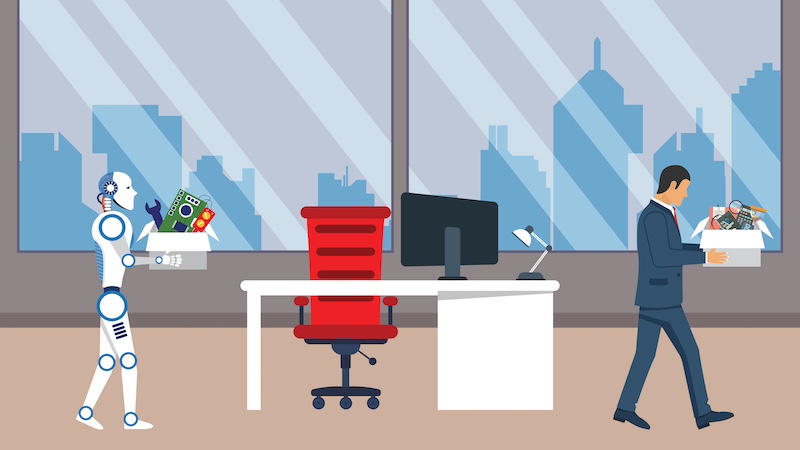The impact of artificial intelligence on the labor market is a hotly debated topic. But what changes are realistic? If the worst-case scenario were to occur in the UK, the use of AI could put eight million Britons out of work.
Will AI create jobs or destroy them, leaving many people unemployed? This question is currently the subject of extensive debate among experts.
A British think tank has now predicted a job apocalypse in a worst-case scenario. This could have a devastating impact on the British labor market.
How many people will be made unemployed by AI?
Around eight million people in the UK could lose their jobs as a result of the use of artificial intelligence. This is the conclusion of a study by the Institute for Public Policy Research (IPPR), as reported by the Guardian.
The researchers speak of a “job apocalypse” if this worst-case scenario were to occur. AI would make women, younger workers and low earners unemployed in particular, as their jobs would be most affected by automation through AI.
According to the IPPR, this primarily includes entry-level jobs as well as part-time and administrative jobs. The displacement of these could take place in the next three to five years.
Second AI wave brings even more automation
The IPPR report describes the introduction of AI as waves. The first wave currently underway is already putting jobs at risk. A second wave could lead to even more automation due to the rapidly increasing progress in the field.
Eleven percent of the tasks currently performed by employees are at risk. In the second wave, this figure could rise to 59 percentage. According to the IPPR, these tasks include routine tasks such as scheduling, stocktaking and database management.
However, the IPPR paints a bleak picture not only for employees. Because while around eight million jobs could be saved in this worst-case scenario, zero GDP growth would cancel out these productivity gains.
In the best-case scenario, AI won’t put anyone out of work
But the think tank’s report doesn’t just paint the devil on the wall. It has also developed a best-case scenario.
According to this, no jobs would be lost through the use of AI. The economic volume would increase by four percent to 92 billion pounds per year.
The IPPR is therefore calling on the government, employers and trade unions to take advantage of these opportunities. This is because AI could “lead to major disruptions in the labor market or boost economic growth enormously”, as Carsten Jung, senior economist at IPPR, explains.










